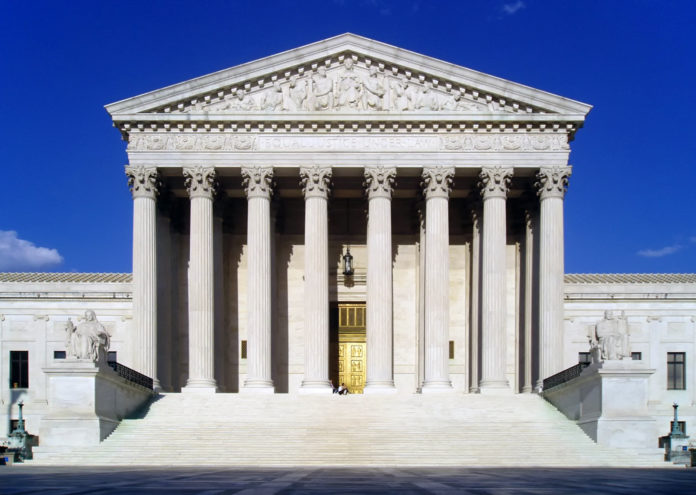(Updated to reflect comment from attorney general; inserts comment from lawmaker and state Equality Coalition)
Kansas is among 16 states asking the U.S. Supreme Court to re-examine a court ruling that found that a Michigan funeral home violated federal law when it fired a transgender employee.
Attorney General Derek Schmidt has joined a friend-of-the-court brief on behalf of the funeral home, which is appealing a ruling from the U.S. 6th Circuit Court of Appeals earlier this year.
The appeals court found that the funeral home violated Title VII of the Civil Rights Act, which bars employment discrimination based on race, color, religion, sex and national origin.
The ruling reversed a lower court decision, which found that the Religious Freedom Restoration Act shielded the funeral home owner from anti-discrimination laws.
The lower court found that allowing Aimee Stephens to dress as a woman would “impose a substantial burden on its ability to conduct business in accordance with its sincerely-held religious beliefs.”
The brief was drawn up by Nebraska Attorney General Douglas Peterson. Also joining the brief were attorneys general in Oklahoma, Texas and Arkansas, as well as the governors of Kentucky and Maine, among a handful of others.
Schmidt said in a statement on Tuesday morning said the state has always argued for a narrow interpretation of Title VII – and Title IX – in order to limit taxpayers’ exposure in potential lawsuits.
“It is within Congress’ authority to expand these laws, but to date they have not chosen to do so,” Schmidt said. “These decisions should be made by the people’s elected representatives and not by the courts.”
Tom Witt, executive director of the Kansas Equality Coalition, said Kansas has no business in the Michigan case. He called on the state to withdraw from the litigation.
“This latest attempt to tear down the wall between church and state – to cite religion as an excuse to legally discriminate against fellow Americans – is just one more dangerous step on the road to divide us…,” Witt said in an email.
Conservative Republican state Rep. Susan Humphries of Wichita praised the attorney general for joining the litigation.
Stephens was fired when she told the funeral home’s owner — described in court records as a devout Christian — that she was a transgender woman and planned to start dressing in appropriate business clothing for women.
The funeral home argued that agreeing to allow Stephens to dress as a woman would have violated the dress code and “disrupted the grieving and healing process” of “clients mourning the loss of their loved ones.”
The case turns partly on how the word “sex” is defined in Title VII of the Civil Rights Act. The states argue in their brief that the federal appeals court vastly expanded the definition of the word “sex” to include gender identity and transgender status.
“In doing so, the lower court rewrites Title VII in a way never intended or implemented by Congress in the Civil Rights Act of 1964,” the states’ brief states.
While the law doesn’t define the word “sex,” the states contend that every dictionary definition at the time the law was enacted defined “sex” as the physiological distinctions between females and males.
“Clearly, a biologically-grounded meaning of ‘sex’ is what Congress had in mind when it enacted Title VII, and that is what the public at the time undeniably would have understood from its plain language,” the legal brief states.
Also in play is whether a 1989 U.S. Supreme Court ruling means that employers must impose policies according to their employees’ sex instead of their gender identity.
The funeral home argues that its policies were not illegal stereotyping where an employer treats one sex better than the other.
“The alleged stereotype,” the funeral home’s brief states, “was not ‘requiring men to wear pant suits and women to wear skirt suits,’ but declining to treat a male employee who professes a female gender identity as a woman.”
The funeral home said, “that although classifying all employees consistently with their sex does not disparately affect men or women, the court rejected…(the) requirement that a plaintiff prove “disparate treatment of men and women.”
















